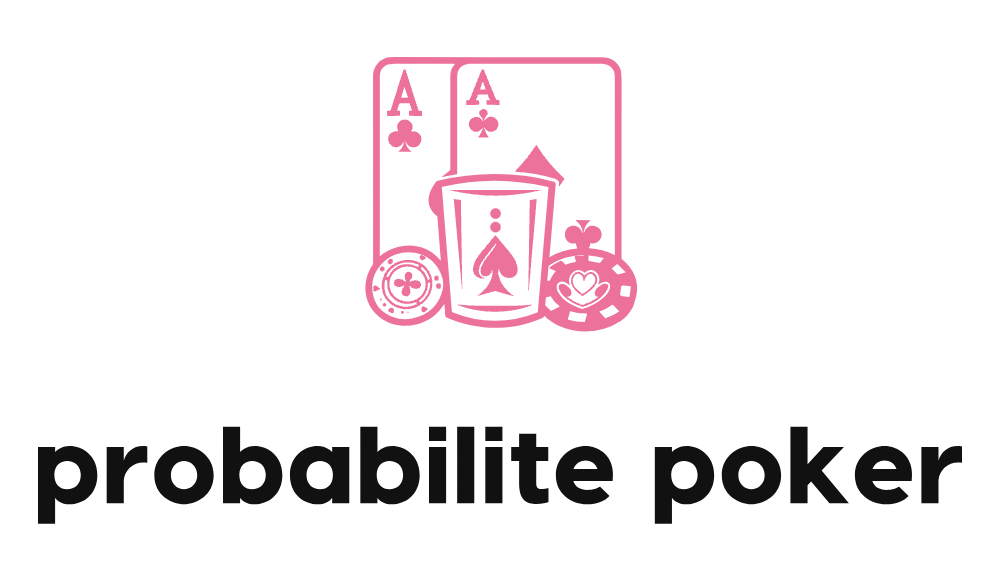Poker has always fascinated us, a game that blends skill, strategy, and a touch of chance.
As we delve deeper into the art of poker game strategies, we realize that mastering this game is not just about the cards we hold, but also about the decisions we make and the mind games we play.
Our journey involves:
- Analyzing techniques that separate novices from seasoned players.
- Sharing insights gleaned from countless hours at the table.
- Examining the subtle nuances of betting.
- Discussing how to read opponents with precision.
Our goal is to equip ourselves with the knowledge and skills needed to outsmart competitors and elevate our game.
In this exploration, we’ll discover that poker is not merely a game of luck, but a craft that, when honed, can lead to triumphs both at the table and beyond.
Essential Poker Skills
Mastering essential poker skills can significantly enhance our ability to make strategic decisions at the table. As we dive into the poker game, it’s crucial to understand the core skills that unite us as a community of players striving for success. These skills not only elevate our individual games but also make us part of a larger, vibrant poker family.
Key Skills to Master:
-
Hand Selection
Knowing which hands to play and when to fold is fundamental. By honing this skill, we can avoid costly mistakes and maximize our winnings. -
Position Awareness
Our position at the table influences the strength of our hand. Understanding its impact can give us a strategic edge. -
Pot Odds Calculation
Being able to quickly assess the potential payoff versus the risk helps us make informed decisions, keeping us ahead in the game.
Together, by mastering these skills, we strengthen our bond as proficient poker players.
Mind Games and Bluffing
A well-executed bluff can transform the dynamics of a game, challenging our opponents’ perceptions and forcing them to second-guess their strategies. In poker, our ability to deceive others is not just a skill; it’s an art.
As players gathered around the table, we learn to read each other’s tells—subtle shifts in behavior or the slightest hesitation that might reveal hidden truths. Our community thrives on these interactions, where mind games are as thrilling as the cards we hold.
Bluffing isn’t about reckless moves; it’s a calculated risk. We:
- Weigh the odds.
- Consider our table image.
- Decide when to push the envelope.
It’s in these moments that we bond, sharing an unspoken understanding of the psychological dance we’re engaged in.
Together, we celebrate the mastery of outwitting our opponents, turning the poker game into a shared experience of suspense and camaraderie. Here, we find belonging, united by the thrill of mind games and the art of bluffing.
Advanced Betting Strategies
In our quest to dominate the table, mastering advanced betting strategies becomes essential. These strategies allow us to manipulate pot odds and influence our opponents’ decisions. As part of the poker game community, we understand that the art of betting isn’t just about the cards we hold but about the story we tell.
By varying our bet sizes, we can confuse opponents, making it challenging for them to read our hands.
- Over-betting can create pressure.
- Under-betting can lure them into traps.
Let’s consider semi-bluffing—a powerful tool in our arsenal. When we bet on a draw, we’re not just hoping to complete our hand; we’re also forcing our opponents to fold better hands.
By leveraging position, we can control the flow of the poker game. Betting aggressively when in late position allows us to capitalize on any weaknesses shown by early players.
Together, these strategies make us formidable at the table, fostering a sense of camaraderie and shared success within our poker community.
Psychological Warfare Techniques
In the realm of psychological warfare, we exploit human behavior to gain the upper hand, turning mind games into our most potent weapon at the poker table. Poker is more than just playing cards; it’s about reading people and controlling the narrative. Together, we delve into strategies that unite us as formidable players, creating bonds through shared cunning and insight.
Strategies for Success:
-
Build a Strong Table Presence
- Confidence and composure project authority.
- Make others question their own strategies.
- Cultivate an air of unpredictability to keep opponents on edge.
- Mix up playstyles to create a dynamic environment favoring adaptability.
-
Utilize Verbal Tactics
- Engage in light banter or maintain silence at key moments.
- Shift the psychological landscape in your favor through conversation.
By employing these techniques, we elevate our poker game, strengthening not just our hands, but our collective spirit.
Reading Poker Tells
In our pursuit of mastering poker, we must keenly observe and interpret subtle physical and behavioral cues, known as tells, to gain an advantage over our opponents. By doing this, we become part of a community of astute players who navigate the poker game with shared insights and camaraderie. Our mutual understanding of these tells strengthens our strategic play and enhances our sense of belonging at the table.
We notice that a slight twitch, a shift in posture, or even a change in breathing can reveal invaluable information about an opponent’s hand. As we grow more adept, we learn to distinguish between genuine and deceptive tells, honing our intuition. It’s like joining a secret club where we all share the same goal: to outwit our opponents through careful observation.
Let’s remember, though, that reading tells is just one piece of the complex poker game puzzle.
Together, we can refine our skills and elevate our collective gameplay, making each hand a testament to our shared knowledge.
Positional Play Tactics
Mastering positional play tactics allows us to leverage our seating position at the table to make more informed and strategic decisions. In a poker game, our position relative to the dealer—be it early, middle, or late—significantly impacts our strategy.
Early Position:
When we’re in an early position, we act first, which poses challenges due to limited information about our opponents’ hands. Here, we should:
- Play more conservatively
- Focus on strong starting hands
Late Position:
Conversely, sitting in a late position gives us a strategic edge. We’ve observed other players’ actions, allowing us to tailor our moves accordingly. This is where we can:
- Explore a wider range of hands
- Employ tactics like bluffing or stealing blinds
By understanding and adapting to these positional dynamics, we become part of a knowledgeable community that consistently makes smart decisions.
Let’s embrace our collective wisdom and refine our poker game by harnessing the power of our position at the table. Together, we can elevate our play and strengthen our bond.
Winning with Probability Calculations
Understanding probability calculations is essential for making informed decisions and improving our chances of winning at the table. When we sit down for a poker game, knowing the odds of various outcomes allows us to strategize effectively and stay one step ahead of our opponents. By calculating the probability of drawing a winning hand or predicting an opponent’s move, we strengthen our position in the game.
Let’s consider pot odds:
- Compare the current size of the pot to the size of the bet we must call.
- Determine if the potential reward justifies the risk.
This calculation helps us decide whether to:
- Fold
- Call
- Raise
It’s like having an inside track, giving us confidence and fostering a sense of camaraderie as we share insights with fellow players.
By mastering these probability calculations, we not only enhance our poker game but also cultivate a deeper connection with our poker community, united in the pursuit of smart and strategic play.
Mastering Table Dynamics
Mastering table dynamics involves keen observation and adaptation to the ever-changing behaviors and strategies of our opponents. In a poker game, each player reveals something about their style with every hand. We must stay alert, reading their tells and adjusting our strategies accordingly.
Key Observations to Make:
- Are they aggressive or cautious?
- Do they bluff often?
By recognizing these patterns, we can anticipate their moves and respond effectively.
Understanding the Rhythm of the Table:
As a collective, we thrive when we understand the rhythm of the table. It’s not just about playing the cards; it’s about playing the players. We should pay attention to:
- How different individuals react under pressure.
- How their strategies shift throughout the game.
This insight helps us make informed decisions, aligning our tactics with the current dynamics.
Fostering Unity and Shared Knowledge:
By fostering a sense of unity and shared knowledge, we enhance our ability to navigate the complexities of any poker game. Together, we can transform observation into strategic advantage, shaping the flow of the game to our benefit.
How can I manage my bankroll effectively while playing poker?
Managing Bankroll Effectively in Poker
Managing our bankroll effectively in poker involves several key practices:
-
Setting Clear Limits
- Establish a budget for each gaming session.
- Stick to these limits to protect your funds.
-
Avoid Chasing Losses
- Resist the temptation to recover losses by betting more.
- This ensures that you don’t exceed your established budget.
-
Track Wins and Losses
- Keep a detailed record of your performance.
- Adjust your strategy based on these insights to improve results.
-
Practice Discipline
- Avoid overextending yourself financially.
- Maintain self-control to ensure you adhere to your budget.
By following these steps, you can maintain a healthy bankroll, allowing for sustainable gameplay and reducing the risk of financial strain.
What are the most common mistakes beginners make in poker?
When starting out in poker, beginners often make mistakes that can significantly affect their game.
Common Errors Beginners Make:
-
Overvaluing Hands: New players often give too much credit to their hands, thinking they have a stronger position than they actually do.
-
Playing Too Many Hands: Beginners might participate in too many rounds, failing to recognize when to fold and conserve their chips.
-
Not Paying Attention to Opponents’ Strategies: Focusing solely on their own cards, beginners might miss crucial tells and patterns in their opponents’ play.
Key Strategies for Improvement:
-
Stay Patient: Avoid rushing into decisions. Take your time to assess the situation on the table.
-
Observe the Table: Pay close attention to the behavior and betting patterns of other players to gather valuable information.
-
Focus on Making Sound Decisions: Rather than focusing solely on winning, aim to make strategically sound choices that will benefit you in the long term.
By learning from these common mistakes and implementing these strategies, players can improve their skills and become more successful in poker over time.
How does the game of poker vary across different cultures or regions?
In poker, the game’s nuances shift across cultures and regions. Different societies bring unique strategies and customs to the table, shaping how hands are played and bluffs are executed.
These variations make each game a fresh and exciting challenge, as we learn to adapt and understand the diverse approaches that players from different backgrounds bring to the game.
Embracing these differences enriches our poker experience and broadens our understanding of the game.
Conclusion
Congratulations on Completing Your Overview of Mastering Poker Game Strategies!
By honing essential skills, mastering mind games, and implementing advanced tactics, you are well on your way to becoming a formidable poker player.
Key Points to Remember:
-
Practice Regularly: Consistent practice is crucial to improve your gameplay and decision-making skills.
-
Study Opponents: Pay attention to opponents’ behaviors and patterns to anticipate their moves.
-
Refine Strategies: Continuously evaluate and adjust your strategies to adapt to different game dynamics.
With dedication and perseverance:
- You can navigate the complexities of the game.
- Emerge victorious at the poker table.
Good Luck and may the cards be in your favor!

